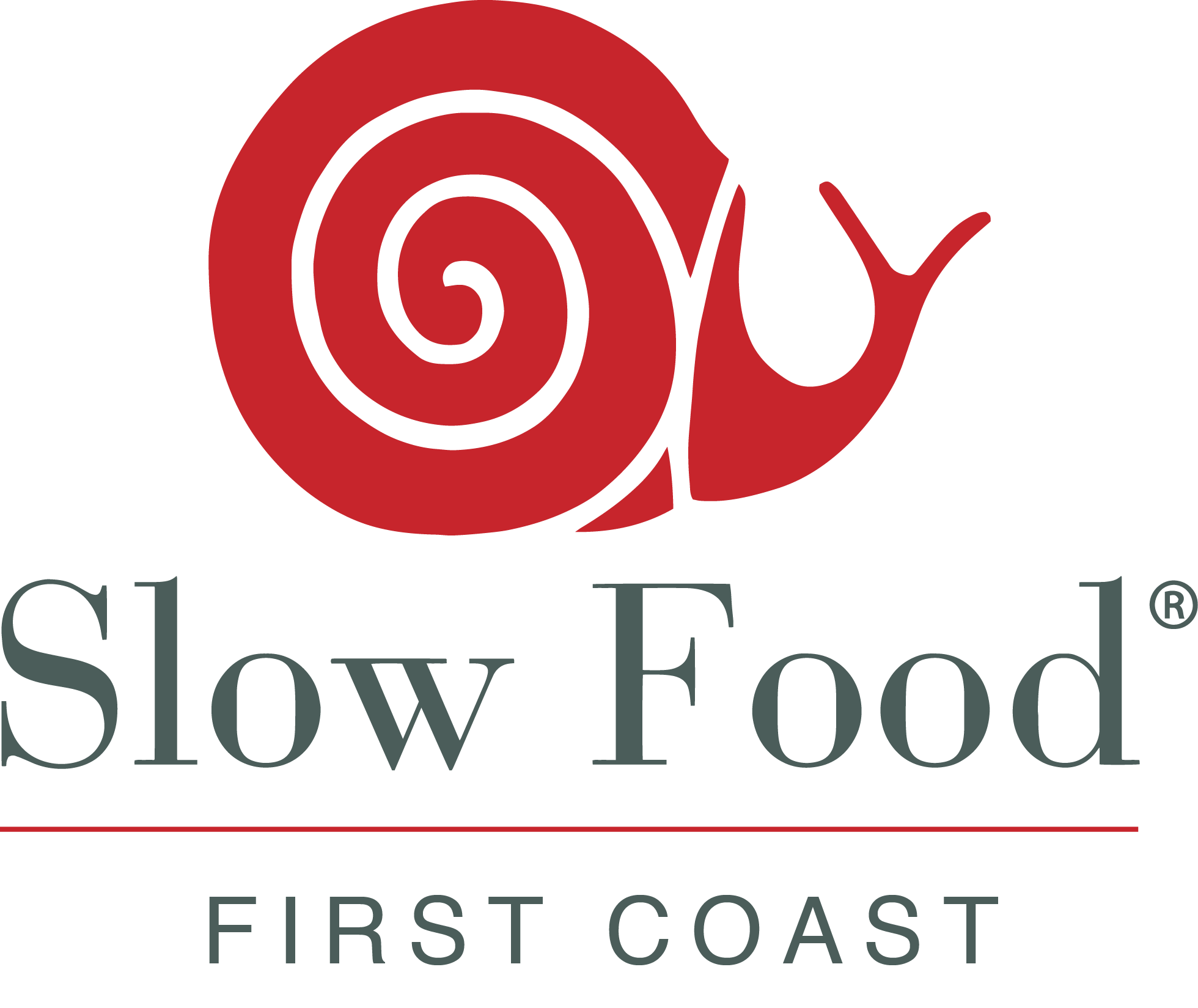Frequently Asked Questions
What is the snail of approval?
The Snail of Approval is Slow Food First Coast’s way of recognizing the food-related providers that are making significant contributions to the transformation of our food system to one that is good, clean and fair.
How do I know if my favorite place is qualified for a snail of approval?
Take a look at the standards, and ask yourself: Do the foods (how they taste, where they come from, what culture or tradition they represent), and/or the processes (in-house curing, farmstead cheesemaking, baking in a wood-fired oven), and the business practices (sourcing from local farms, using local ingredients, featuring fair-trade products, informing the public where the food comes from) help move us toward a food system that is better, cleaner, fairer? You may also have to ask some questions of a proprietor, or chef, to understand exactly what they’re doing and why. “Where do the ingredients come from?” “What do you do when strawberries go out of season?” “Why do you make it that way?” To fully appreciate the food we eat, we need to enjoy it, and we also need to know something about it. Be sure to include their contribution to supporting local growers and producers.
If I patronize snail of approval recipients, am I supporting slow food?
You’re not supporting the organization, but you are supporting the cause. When you eat at a Snail of Approval restaurant or shop at a Snail of Approval store, Slow Food doesn’t benefit financially, but the food system benefits a great deal. You’re supporting local farmers and food artisans, sustainable agriculture, cultural food traditions, and humane practices. You’re helping to stop agricultural pollution, reduce greenhouse gases, and slow the loss of biodiversity. You’re ensuring the survival of endangered heirloom varietals, heritage breeds, and traditional foodways.
How can I find Snail of Approval restaurants and stores?
You can search for them right here on the SFFC website, or watch for the red snail decal. You can even ask your favorite restaurant owner "Do you have a Snail of Approval?"
How does one receive a snail of approval?
One has to be nominated, and then reviewed by a committee of members who ensure the nominees’ contributions to three standards: Quality, Authenticity, and Sustainability. Take a look at the standards and procedures used to select recipients, then go to the online form to nominate.
Does a snail of approval guarantee that a restaurant or shop is "slow?"
No. We can’t make that kind of guarantee, and we don’t certify that any food or food business is “Slow.” A Snail of Approval means that Slow Food members think the recipient is making a real contribution to the kind of food system we believe in, and we believe their effort is worthy of our support. What about a place where the food is great, but it’s not sustainably raised? Or a place that serves local foods, but has all imported wines? The Snail of Approval standards talk about food that makes “significant contributions to Quality and/or Authenticity and/or Sustainability.” The American food system is a long, long way from the good, clean and fair system that Slow Food envisions; in order to help us get there, we want to recognize those who are making real steps in the right direction. Let’s take a French restaurant, for example, that buys all its food from small local farms, but where the chef wants to pair French regional wines with his French regional dishes. He or she is not supporting the local wine industry, but is making contributions both to sustainable agriculture and to authentic French cuisine—not a bad day’s work. Whether those contributions add up to a Snail of Approval will be for Slow Food members to decide.
Is the food from snail of approval providers organic?
Maybe, maybe not; you’ll have to ask. Organic agriculture certainly tends to be more sustainable than agriculture dependent on the overuse of chemicals. On the other hand, organic vegetables from China burn a lot of fuel getting all the way to Florida, which might be much worse for the planet than using a little fertilizer on a Hastings tomato. And getting USDA Organic certification is expensive, so some small farms don’t bother, even though they use no chemical fertilizers or pesticides.
There’s a great little restaurant near me that uses all local produce—can I nominate them for a Snail of Approval?
Sure! You can nominate a Snail here.
